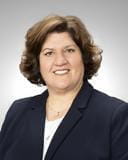The Senior Professional Staff Nurse II is a Registered Nurse, a member of the care delivery team, and responsible for seeking opportunities to assist in changing practice through process improvement. The Senior Professional Staff Nurse II is responsible to set the standards for the level and quality of care. The Senior Professional Staff Nurse II has responsibility, authority and accountability for the provision of nursing care. The Senior Professional Staff Nurse II manages and provides patient care activities for a group of patients and their families through the application of independent judgment, communication and collaboration with all team members. The role of the Senior Professional Staff Nurse II encompasses leadership, partnership, collaboration and supervision. The Senior Professional Staff Nurse II establishes and maintains collaborative relationships with physicians, other health care providers, patients and their families, to achieve desired patient outcomes throughout the continuum of care. The Senior Professional Staff Nurse II demonstrates a commitment to the community and to the nursing profession.









